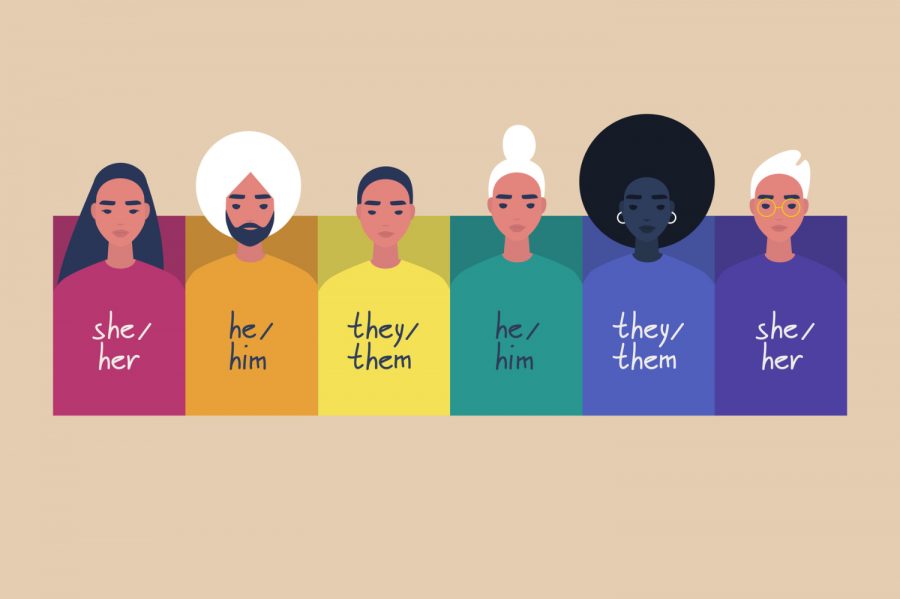Opinion | A basic guide to gender, trans people, and why any of it matters
Not everyone is up to date on trans issues, and Elliot Page offers a chance to catch up.
December 10, 2020
Earlier this month noted actor Elliot Page came out as trans with he/they pronouns. While there was a lot of outpouring of support and congratulations, there is also some confusion as to what exactly this all meant. So, here’s a brief summary of what exactly being transgender means, what being non-binary means, and how to be supportive of someone coming out.
To talk about being transgender, we first have to establish what gender itself means.
Gender is the behavioral, cultural, or psychological traits associated with one sex, according to Merriam Webster. This association comes what from what is consider typical, and it isn’t a monolithic category.
There is also gender identity, which is a person’s internal sense of between male and female or neither.
A person’s gender does not have to coincide with one’s sex, which refers to one’s genitalia and reproductive organs. When that happens, that is what’s called being transgender.
This is a lot of information, but this is essential to remember: What I’m writing here is a generalization. All transgender people are different with different experiences, and no two transitions are alike.
Speaking of transitioning, there’s three parts to it: social, medical, and legal.
Social transition is “coming out” in a sense, a longstanding tradition of queer people telling the world they exist. This includes changing gender presentation — how you talk, dress, behave — as well as a changed name and pronouns.
This is largely where family, friends, and acquaintances come in to support. Respecting a trans person’s name and pronouns are a massive part of their mental well-being.
Medical transition is what a lot of people when they think of the word “transgender.” This is undergoing hormone replacement therapy, gender reassignment surgery, and other medical treatments.
An important thing to note is that not every transgender person undergoes medical transition. In no way is hormone therapy necessary for someone to be trans or to transition.
Then there’s the legal process. This entails a corrected gender marker on various legal documents changed such as drivers licenses, birth certificates, and passports.
Not all states allow for certain documents to be changed or only be changed after the person meets a certain threshold. Iowa, for example, requires an affidavit from a doctor stating that the person’s sex designation has changed by surgery or other treatment to update your birth certificate.
When we talk about transgender people, often times we are focused on people who go from male to female, or female to male. But there are trans people who aren’t MtF or FtM, but non-binary. This is how Elliot Page identifies.
Being non-binary just means not identifying as being either male or female. There’s really nothing more to it than that. The gender binary can be incredibly restricting to people and just identifying as neither is what feels best for them.
So if someone has he/them pronouns, you could say “Hey, he’s a cool person,” or “Hey, they’re a cool person.”
Though to be honest, way too many people default to the binary pronoun so if you meet someone who goes by he/they, it’s probably better to go with “they” when talking about or with them.
There is a lot more that could be said, but allow me to finish on these two final points.
Being transgender is valid according to every credible medical institution in the world – if you don’t believe that, I’m sorry but you’re just factually wrong.
Being transgender isn’t a new phenomena or a fad, it’s newfound social acceptance that’s been pushed for by activists for generations. Trans people aren’t new, they’ve always been here and they always will be.
Columns reflect the opinions of the authors and are not necessarily those of the Editorial Board, The Daily Iowan, or other organizations in which the author may be involved.














